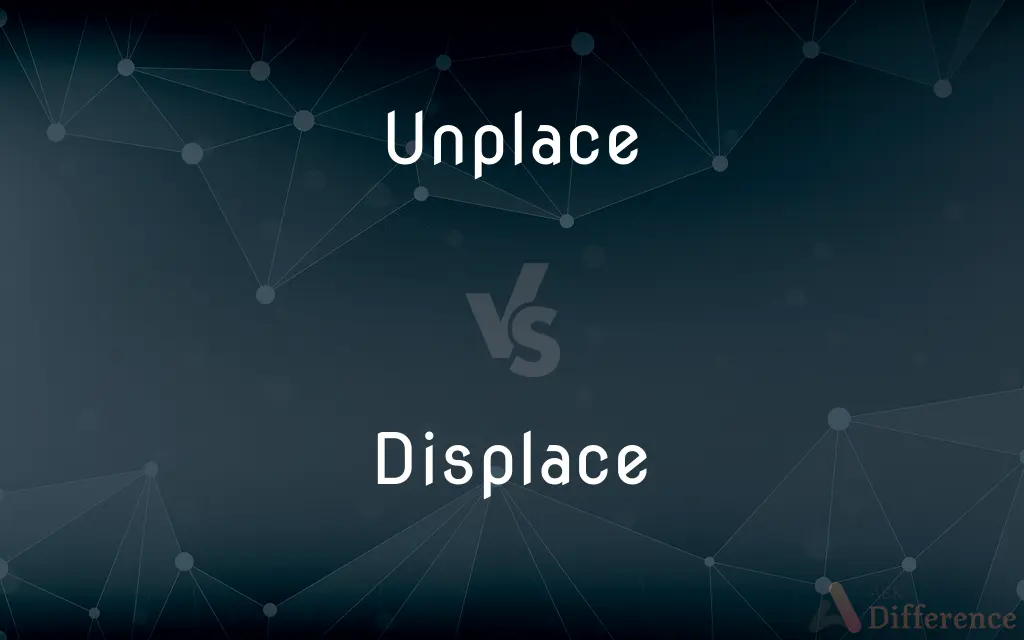Unplace vs. Displace — What's the Difference?

Difference Between Unplace and Displace
ADVERTISEMENT
Compare with Definitions
Unplace
(transitive) To remove from one's place; displace.
Displace
To move, shift, or force from the usual place or position
Wasn't the net displaced before the puck went in?.
Unplace
Lack or absence of place; placelessness; displacement.
Displace
To force to leave a place of residence
The conflict displaced thousands of people.
Displace
To move or shift from the usual place or position, especially to force to leave a homeland or other place of residence
Millions of refugees who were displaced by the war.
ADVERTISEMENT
Displace
(Chemistry) To replace (an atom, radical, ion, or molecule) in a compound during a reaction.
Displace
(Physics) To push aside and occupy the physical space of (a volume of fluid, for example)
A boat that displaces 1,000 cubic meters of water.
Displace
To take the place of; supplant
When coal displaced wood as the dominant energy source.
Displace
To discharge from a job, office, or position.
Displace
To put out of place; to disarrange.
Displace
To move something, or someone, especially to forcibly move people from their homeland.
Displace
To supplant, or take the place of something or someone; to substitute.
Displace
To replace, on account of being superior to or more suitable than that which is being replaced.
Electronic calculators soon displaced the older mechanical kind.
Displace
(of a floating ship) To have a weight equal to that of the water displaced.
Displace
(psychology) To repress.
Displace
To change the place of; to remove from the usual or proper place; to put out of place; to place in another situation; as, the books in the library are all displaced.
Displace
To crowd out; to take the place of.
Holland displaced Portugal as the mistress of those seas.
Displace
To remove from a state, office, dignity, or employment; to discharge; to depose; as, to displace an officer of the revenue.
Displace
To dislodge; to drive away; to banish.
You have displaced the mirth.
Displace
Take the place of
Displace
Force to move;
The refugees were displaced by the war
Displace
Move (people) forcibly from their homeland into a new and foreign environment;
The war uprooted many people
Displace
Cause to move, both in a concrete and in an abstract sense;
Move those boxes into the corner, please
I'm moving my money to another bank
The director moved more responsibilities onto his new assistant
Displace
Remove or force from a position of dwelling previously occupied;
The new employee dislodged her by moving into her office space
Displace
Put out of its usual place, position, or relationship;
The colonists displaced the natives
Share Your Discovery

Previous Comparison
Huge vs. Mega
Next Comparison
Literal vs. Variable














































